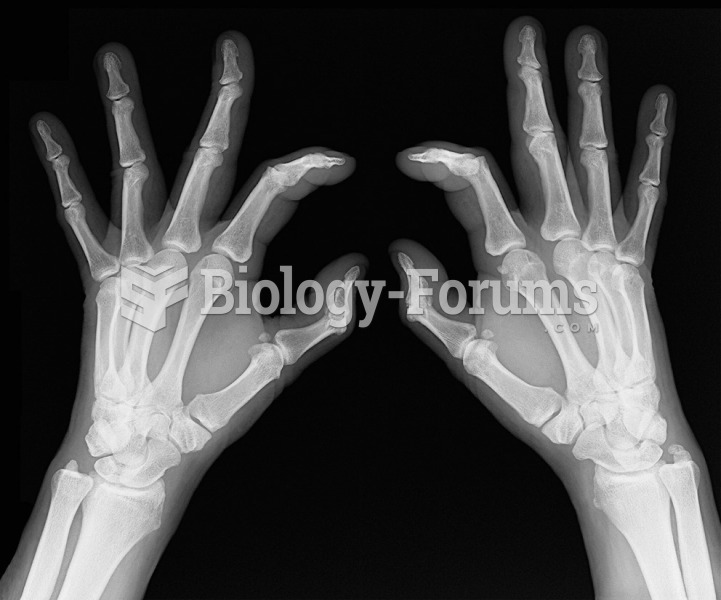|
|
|
Normal urine is sterile. It contains fluids, salts, and waste products. It is free of bacteria, viruses, and fungi.
In most cases, kidneys can recover from almost complete loss of function, such as in acute kidney (renal) failure.
The B-complex vitamins and vitamin C are not stored in the body and must be replaced each day.
Approximately 25% of all reported medication errors result from some kind of name confusion.
The top 10 most important tips that will help you grow old gracefully include (1) quit smoking, (2) keep your weight down, (3) take supplements, (4) skip a meal each day or fast 1 day per week, (5) get a pet, (6) get medical help for chronic pain, (7) walk regularly, (8) reduce arguments, (9) put live plants in your living space, and (10) do some weight training.







